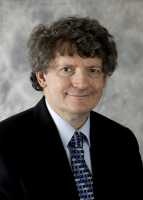Author Interviews, Heart Disease, Pharmacology / 14.05.2019
Grapefruit Juice Can Cause an EKG Change, Prolonged Q-T Interval, Aggravated by Some Medications
MedicalResearch.com Interview with:
Sami Viskin MD
Tel-Aviv Medical Cente
Sackler School of Medicine
Tel-Aviv University, Israel.
MedicalResearch.com: What is the background for this study? What are the main findings?
Response: There are >200 medications with reported QT-prolonging risk. The majority of these medications do not even have cardiac indications, yet cause unintended QT-prolongation because they block IKr potassium channels in myocardial cells. With so many drugs, of such varied composition, blocking the IKr channel, it is reasonable to assume that food compounds also have IKr-channel-blocker properties, raising the possibility that proarrhythmic food exists.
We tested the effects of grapefruit on the QT interval with the rigorous methodology used by the pharmaceutical industry to test new medications before they are released to the market.
(more…)


